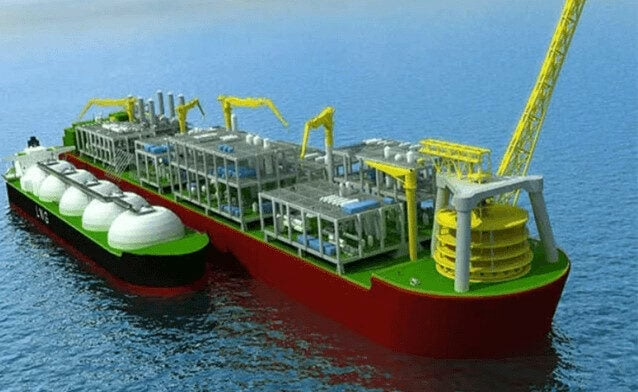Users of Liquefied Petroleum Gas (LPG), commonly known as gas/” title=”Wife Shares Surprising Preference: Husband Chooses Firewood-Cooked Meals Over …!”>cooking gas, are poised to experience relief as major buyers with gas purchase agreements from the Nigerian Liquefied Natural Gas (NLNG) company have ramped up product loading efforts. This move is intended to curb stock shortages that have recently driven prices upward.
According to information gathered, NIPCO Gas and 11Plc Gas began offloading LPG from NLNG last Friday. The volume of loading was expected to increase significantly by Monday night to strengthen distribution networks throughout the market.
Despite these efforts, several key players in the LPG sector remain uncertain about the duration of the current price volatility affecting cooking gas.
An insider from a prominent LPG marketing association, who preferred to remain anonymous, shared insights into the complexities behind the market instability. He highlighted that depot operators involved in LPG importation suffered substantial financial losses following the commencement of LPG production at the Dangote Refinery, which initially caused prices to drop.
However, the refinery’s production was temporarily halted due to a brief strike by the oil sector union, exacerbating supply challenges. Compounding the issue, Dangote Refinery lacks adequate storage facilities for LPG, as its primary focus is on refining petrol and aviation fuel rather than gas.
Another source within the major marketing companies indicated that it might take until the weekend for supply levels to stabilize. “Unlike petrol, LPG loading is restricted to about 25 trucks per night due to safety protocols and necessary documentation. Nevertheless, with the current intensification of loading activities, consumers in Lagos and other South West states should soon notice a significant reduction in prices,” the source explained.
Consumers interviewed by our reporter shared their experiences amid the price fluctuations. One individual mentioned, “My husband recently purchased cooking gas for N2,000 per kilogram.” Another customer, who traveled a considerable distance to access more affordable gas, said, “I came all the way from Agege to Ikeja because gas costs N2,500 per kilogram in Agege, but here near Oba-Akran, it’s N1,500. Previously, we used to pay around N1,100, so the increase is quite steep.”
Ajayi Abayomi, a senior staff member at a gas station in the Anifowoshe area of Oba-Akran, Ikeja, confirmed that their current selling price stands at N1,500 per kilogram. He attributed the price surge primarily to supply constraints. “There’s no other reason besides limited availability. The gas we’re selling was redirected from our operations in Port Harcourt, Rivers State. We had to transport it here to ensure customers aren’t left without gas,” he said.
Ajayi further explained that their usual supply sources include Dangote Petroleum Refinery & Petrochemicals and Apapa, but recent disruptions have complicated the supply chain. “The price increase is partly due to the conflict between the Petroleum and Natural Gas Senior Staff Association of Nigeria (PENGASSAN) and Dangote Refinery. This dispute affected operations in Apapa, where gas deliveries were supposed to occur. The suspension led to scarcity and pushed prices higher,” he added.
He also noted that when Dangote Refinery halted gas sales, other suppliers took advantage by raising their prices. “We purchase from these suppliers and sell at their rates. Previously, gas was under N1,000 per kilogram, but now it’s N1,500,” Ajayi emphasized.
It is worth recalling that in January 2022, NLNG pledged to allocate 100% of its Butane (cooking gas) and Propane production to the Nigerian domestic market. This commitment was designed to enhance LPG availability, affordability, and accessibility nationwide.
This initiative, launched under the Domestic LPG (DLPG) scheme, aims to boost national LPG consumption, support the government’s “Decade of Gas” program, and reduce dependence on imported gas. NLNG now supplies all its Butane output domestically, making it the largest single LPG supplier within Nigeria. The pledge was later extended to include all Propane production for cooking gas blending and industrial uses.
Through ongoing collaboration with industry stakeholders, NLNG seeks to ensure price stability and foster a sustainable LPG market in the long term.






















